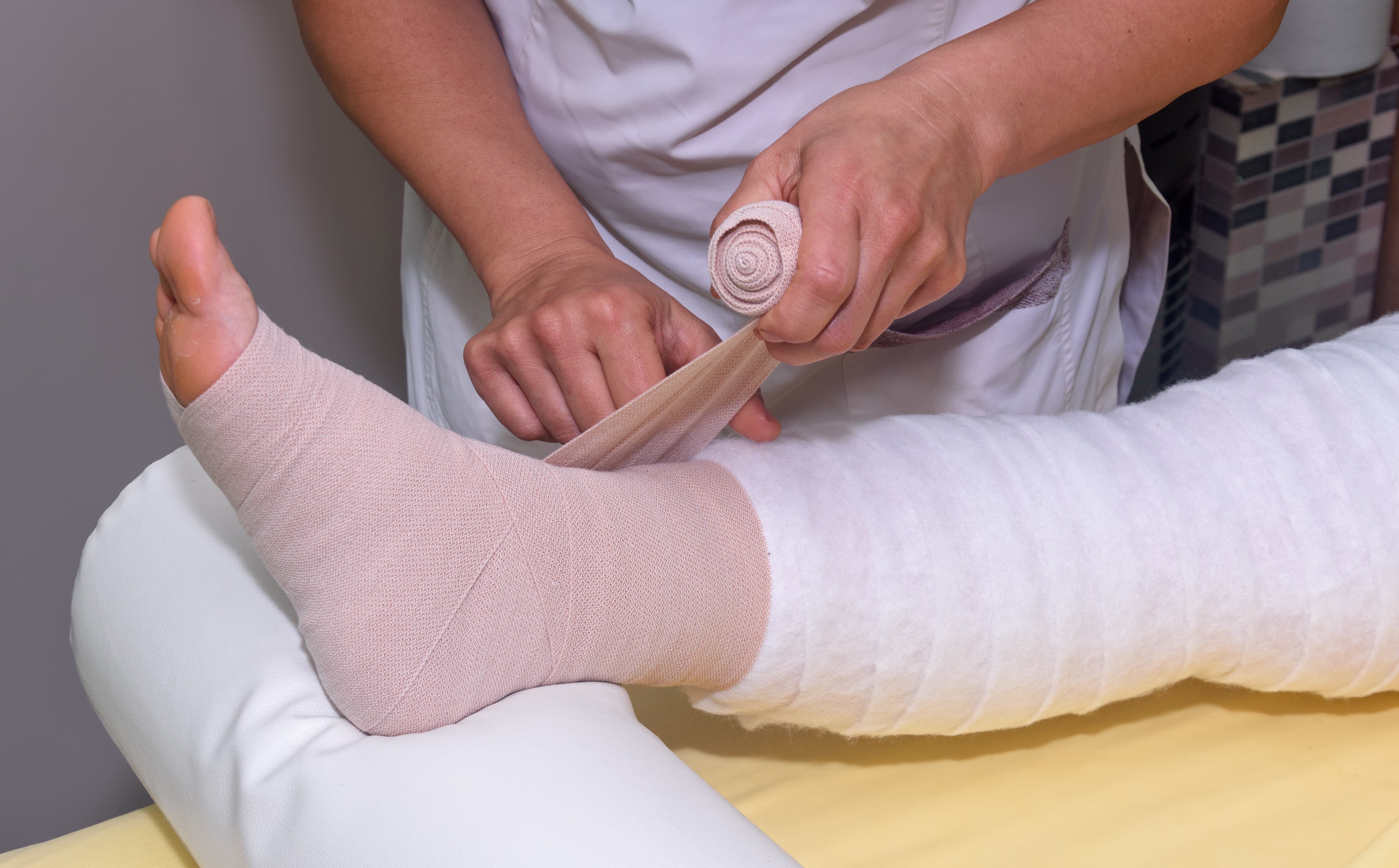Lymphedema Management

.jpg)
At Advanced Wound Ostomy and Continence Care in Ocala, FL, our Lymphedema Management program helps patients reduce swelling, prevent complications, and regain mobility. Our specialized approach combines therapy, education, and ongoing support for improved quality of life.
What Is Lymphedema Management?
Lymphedema Management is a comprehensive program designed to control fluid buildup in the tissues caused by impaired lymphatic circulation. Treatment focuses on reducing swelling, preventing infections, and improving limb function through specialized therapies, compression, and patient education.
What to Expect from Lymphedema Management
During treatment, patients receive a thorough assessment of the affected area, followed by a tailored plan that may include manual lymphatic drainage, compression therapy, exercise guidance, and skin care instruction. Ongoing monitoring ensures treatment effectiveness and adapts care as needed.
Who Is a Good Candidate for Lymphedema Management?
Lymphedema Management is suitable for individuals who:
- Experience persistent limb swelling due to lymphatic obstruction
- Have a history of cancer treatment affecting lymph nodes
- Require support for chronic or recurring lymphedema
- Want to prevent complications such as infections or reduced mobility

What is lymphedema, and how does it affect me?
Lymphedema is swelling caused by the buildup of lymph fluid in the body, often affecting the arms or legs. It can result from surgery, cancer treatments, or genetic factors.
How can I manage lymphedema on my own?
Managing lymphedema involves regular treatment, including manual lymphatic drainage, compression therapy, exercise, and proper skin care. Lifestyle changes, such as maintaining a healthy weight, are also important.
Is lymphedema curable?
While there is no cure for lymphedema, it can be effectively managed with timely treatment and lifestyle changes, helping to reduce swelling and improve quality of life.
How often should I receive lymphedema treatment?
The frequency of treatment varies depending on the severity of the condition, but regular visits and ongoing self-care are essential for managing lymphedema effectively.
